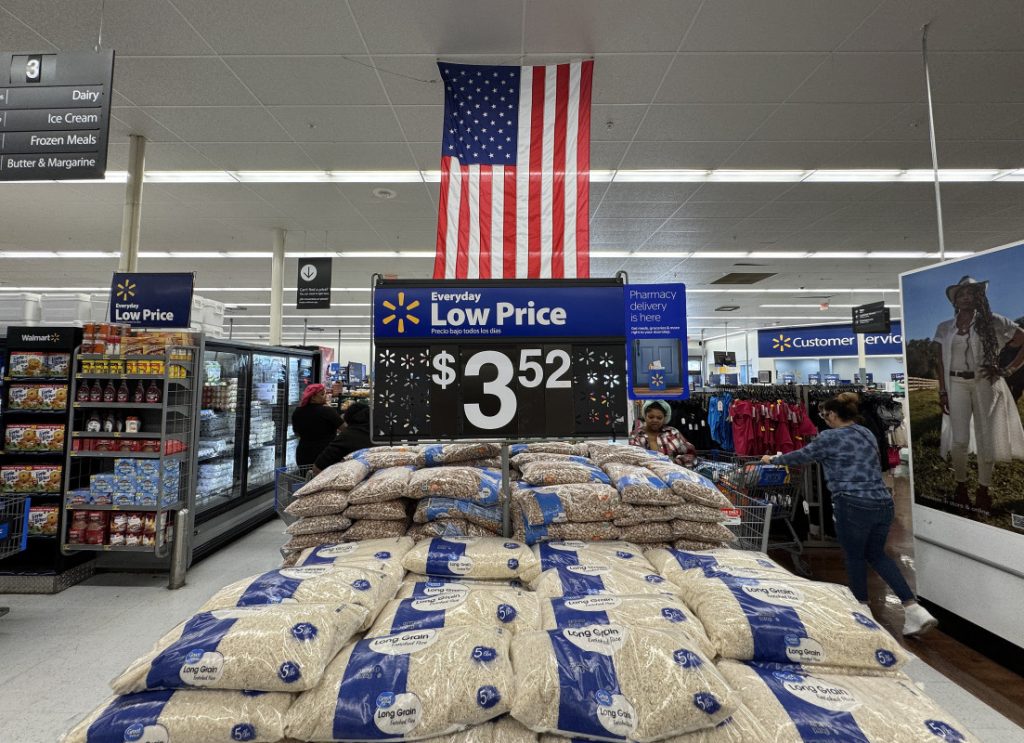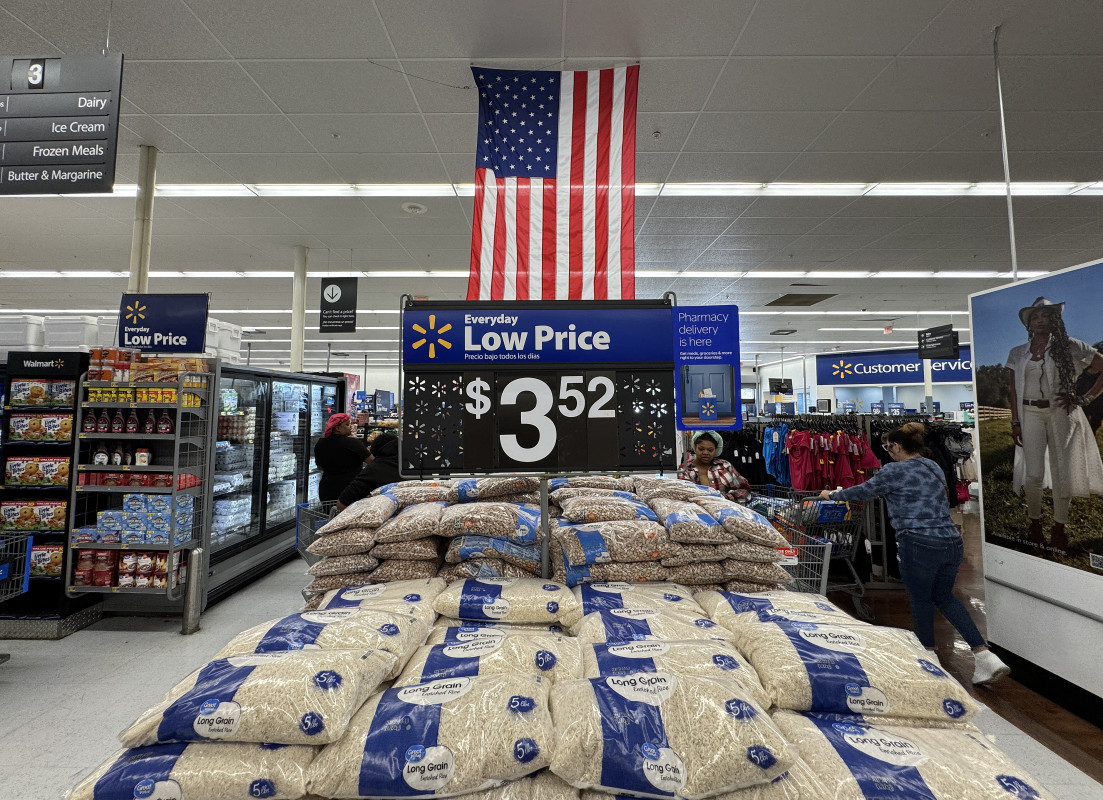How good is the China trade deal? Better ask Walmart

Come Thursday morning early, maybe before that, Walmart (WMT) will know a lot about the reality of the U.S.-China trade talks this weekend.
The two sides cited “substantial progress” during the talks after they ended Sunday
💵💰Don’t miss the move: Subscribe to TheStreet’s free daily newsletter 💰💵
The White House said there was a deal.
Related: Major toy brand faces new threat over tariff plan
The closest anyone came to saying there was a deal came from U.S Trade representative Jamieson Greer on Sunday. He told reporters, “It’s important to understand how quickly we were able to come to agreement, which reflects that perhaps the differences were not so large as maybe thought.”
Chinese officials weren’t quite there. Both sides have an agreement for “a mechanism for negotiations,” according to Bloomberg. They do want to resolve differences with the Trump Administration and hope to get a pact done “as soon as possible.”
Related: Detroit automakers warn UK trade deal will hurt US auto industry
What it really means, according to strategist Michael Browne of Pepperstone, an Australian investment bank, is the two sides agreed to “a broad framework under which the two nations can conduct further talks, with the aim of reaching a broader trade agreement.”
It’s not “the worst case outcome that was possible from this weekend’s talks, far from it, but not a concrete deal either,” the London-based Brown wrote Sunday in a note to clients.
We raise Walmart for two reasons:
- Historically, the company has sourced much of its hard merchandise from China — from toys to gardening tools, sponges, sporting goods and pots and pans. Walmart buys its food inventory for its grocery operations — from produce to meat — mostly from U.S. suppliers.
- The company reports fiscal-first-quarter earnings early on Thursday with an analyst call due before stocks open.
And, yes, you can bet many analysts will want to know as much as they can about how tariffs will or won’t affect Walmart’s businesses.
They did ask those questions at the company’s fourth-quarter earnings call, held on Feb. 20.

Justin Sullivan/Getty Images
At that time, however, CEO Doug McMillon and Chief Financial Office John David Rainey were circumspect about the Trump Administration’s tariff plans. The issue: There were very few details.
“Tariffs are something we’ve managed for many years, and we’ll just continue to manage that,” McMillon said.
Now, there will be more meat on the question, especially after Monday, when the Administration offers an update on the talks. The update may include discussion of:
- Areas of agreement.
- Areas of disagreement.
- Any changes in tariff rates.
- Deadlines for getting a deal done.
- Who will sign the agreements.
The odds are that President Donald Trump and China President Xi Jinping will sign an accord, unless the talks fall apart.
Big, ridiculous tariff rates
And remember: the United States is charging 145% tariffs on goods imported from China. China is charging 125% tariffs on goods imported from the U.S.
The practical effect of tariffs that high, really, is there almost no trade between the two countries.
President Trump has talked about cutting the rate on Chinese goods to 80%, which probably would have little effect on the situation. Commerce Secretary Howard Lutnick has talked over the weekend about a 34% tariff rate.
The Chinese delegation did not speak publicly after the Geneva meeting concluded on Sunday. So, we don’t know yet if there are new tariff rates on the table.
Why Walmart is so interested
All of which will be of interest to Walmart for at least two reasons
- CEO McMillon was one of three retail CEOs who told the president in an April White House meeting that the tariffs were so extreme that stores shelves would be empty by summer. The others were Target (TGT) CEO Brian Cornell and Home Depot (HD) CEO Edward Decker.
- Also, Walmart operates at least 336 stores in China now and, one presumes, would like to open more.
In February, Walmart projected first-quarter sales worldwide will grow 3% to 4% from a year ago. Operating income will grow 0.5% to 2%. Earnings will range from 57 cents to 58 cents.
The consensus Wall Street earnings estimate is 59 cents. The revenue estimate is $164.7 billion.
Walmart shares have weathered the extreme stock-market volatility of the last month pretty well. The shares fell 7.3% in the two days after President Trump announced his tariff plan on April 4. They were down as much as 8.9% from the April 2 close before starting to recover.
As of Friday, Walmart shares are up 7.1% on the year.
More Retail Stocks:
- This rising trend terrifies the alcohol industry
- Home Depot, Walmart customers get good news after tariff scare
- Amazon customers get bad news for upcoming Prime Day
Walmart, which ended Friday with a market capitalization of $773.8 billion, is a component in the Standard & Poor’s 500 Index and the Dow Jones Industrial Average.
The indexes are down 3.8% and 3%, respectively, on the year.
Walmart’s gain is ahead of the year-to-date returns for every stock in the so-called Magnificent 7 stocks. Microsoft’s (MSFT) return is 4.1%. Tesla (TSLA) is still down 26%, and Apple (AAPL) is off 20.7%.
A busy week of earnings
Walmart is the biggest report of a busy week. Also reporting this week are:
- Monday: Fox Corp (FOXA) and Simon Property Group (SPG) .
- Tuesday: ICI Bank (IBN) , Chinese Internet retailer J.D. Com (JD) and Tencent Music Entertainment Group (TME) .
- Wednesday: Dow component Cisco Systems (CSCO) .
- Thursday: Alibaba Holding (BABA) , the Chinese internet company; farm-equipment manufacturer Deere (DE) ; chip-equipment manufacturer Applied Materials (AMAT) ; and Take-Two Interactive Software (TTWO) , publisher of the Grand Theft Auto series of video games.
- Friday: Automaker Toyota Corp. (TM) and electronics giant SONY (SONY) .
Related: Veteran fund manager unveils eye-popping S&P 500 forecast
#good #China #trade #deal #Walmart





